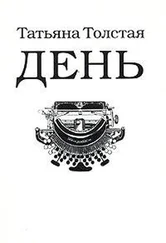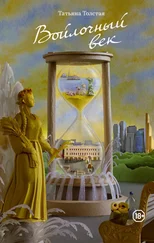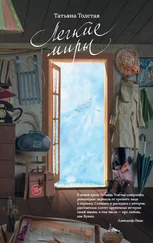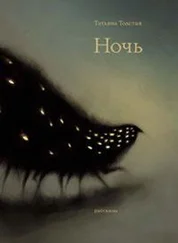“What do you mean, ‘the plague’?”
“You’ll see, their aunties will start dying off; grief will prevent them from coming to class and taking tests.”
And what do you know, two groups of students suffered the loss of three aunties, a few uncles were writhing in agony, and the fiancée of one of the most arrogant pretty boys was rotting alive.
“Rotting alive?” I asked again, fascinated.
“Yep!” he confirmed shamelessly. “At first it was just, like, her legs to the knees, then it kinda, like, spread further up, and now she’s literally in her last hours. One more week, I think, is all I need. Such a tragedy, you know?”
I took pity and gave him a passing grade for such beautiful fiction. Yes, I have added to the weight of the balance. Yes, I have falsified the plummet of the scales.
§
During my years there I did have some talented students, if unexceptionally so, a few of those even planning to make a career out of writing, stocking store shelves with their uninteresting, timid stories tinged with soft-core porn. Most often, they’d pick my brain about getting published in The New Yorker —what and how did one need to write to make that happen? I’d tell them that I didn’t know, that getting published is a different skill altogether. But they wouldn’t believe me. One young lady grumbled: “Fine, I get that you need to sleep with the editor. But what else?”
Every student was supposed to write three stories per semester. And to rewrite, for improvement, each story at least once. This means that during my time teaching there, I read five hundred and forty short stories. And reread them. By the end of my sentence, all the delicate passageways by which I found access to aetherial worlds had thus become clogged with nonbiodegradable plastic waste. Full of ennui, I’d pick up the next one: “Susan felt a strong connection with George. They preferred the same brand of toothpaste, they both enjoyed listening to the Smashing Pumpkins….”
During this entire time, I had only two encounters out of the ordinary. There was one girl completely free of any storytelling constraints and conventions—the others all eyed her with fear. She wrote a story about how much she liked shoplifting: both to ease things when cash was low and for the intrinsic joy of it; how, when planning to shoplift cheese, she’d put on a thick sweater with wide sleeves and traipse through the store with the most carefree expression, bending casually over the cases with prepackaged triangles of formaggio as if searching for something, but then, surreptitiously, with her sleeve held taut, she’d scoop up a package of Roquefort, or something just as expensive, never actually touching it, and holding something else in her other hand as a decoy. If someone bothered to look, they wouldn’t even notice. Once the cheese slid down to the elbow, she had only to lift up her arms, as if to fix her hair, which had deliberately been left disheveled. At this stage the cheese would pass through the armhole and into her baggy sweater, securely cinched at the waist.
This wasn’t even so much a short story as it was an étude, a study, yet it was more than any of the others—the lazy and the diligent alike—were capable of. They couldn’t feel what the trick was, and I didn’t know how to explain it: a culture that makes blanket pronouncements such as “Yes means yes and no means no” and orients itself squarely toward a puritanical ethic fails at parsing metaphors and acknowledging paradoxes; it fears play and runs from even fictive sins. I grew attached to this girl, who though from a wealthy family enjoyed shoplifting and lying precisely because, with nothing denied her, she was bored. She’d look into thin air and see visions. She yearned for different worlds and, by her own admission, had a way to reach them. She had a mild form of epilepsy, and every once in awhile she’d have a seizure, petit mal—almost unnoticeable by others. And as we know—from Dostoyevsky, for example—other worlds opens up right before an epileptic seizure. Everything around you begins to make sense: the workings of the universe, all causes, all meanings, everything. But then a dark veil descends and you thrash about in convulsions, and when you come back you don’t remember anything. She told me that as a little girl, whenever they gave her anticonvulsives, she’d purposefully not take them, so as to be “elucidated,” “to keep things interesting.” Oh, how I envied her! Sure, I was also able to go there, but not deep inside and not without effort; there was no elucidation or convulsions, the key to the entry gates being tears. Or, occasionally, love.
The second exception was a lad who, in his standard academic classes—and this was an academic institution after all, albeit one of liberal arts—was widely considered an idiot. His looks didn’t help—the physique of a potato sack, a backwards baseball cap, a rumpled white sweatshirt, coarse features and heavy tread. His parents, farmers, apparently belonged to some reclusive religious sect. It seemed that prior to college, the most sentient being he had come across was a cow. I suspected he was autistic.
When I saw his writing, I couldn’t believe my luck. I can’t reproduce it now and the manuscript has been lost—those New Jersey floods finally did reach my basement, annihilating my entire archive—and to be honest, I don’t even remember what the story was about. But there was something wondrous in its brute savagery. A brother and sister. She’s sitting at a wooden table, eating pea soup. He throws an ax at her. He misses. I don’t remember why. The atmosphere is downright Bruegelesque. It wasn’t so much the plot—but the smell of stables, peas, and smoke veritably emanated from the pages and I could just see those people, slow-moving and oafish. This bumpkin was possessed of an inexplicable ability to glide effortlessly through walls of words to those subterranean fields where intentions are sown, where the winds of meaning blow, and where motives rustle. But his story didn’t end. It simply stopped.
“Yeah,” he said. “I don’t know yet what comes next.”
We were sitting in an empty auditorium; no one was disturbing us.
“What if you lift it here and pull this way?” I asked carefully, and pointed with my finger. He looked.
“That could work,” he said after some thought, “but won’t it sag there?” He also indicated.
“Yes… but if you pad right here, la la la, maybe four lines or so, no more, and then trim the beginning?” I couldn’t, I simply couldn’t believe that this was happening.
“Yeah, I see it! And then thread it through like this.” He chuckled with delight. “I got it, I got it! That works! And then I’ll add some heft right about here.”
He pressed his finger into the paper, as if adding weight.
“I’d get rid of this phrase… or maybe move it. Seems too pink, and right here, it’s too smoky.”
“No, I need that. I’ll move it into the shadows. And, and… and I’ll add a J, it’s nice and graphite.”
I was completely besotted. An astral twin had been sent to me in the form of a potato sack. I could have spent hours next to him, although not eye-to-eye—there wasn’t much to look at—but voice to voice, so that we, like Dante’s Paolo and Francesca, could read any book, sifting it with four hands as if it were sand from the ocean, laughing with the joy of little kids who, when the grown-ups weren’t looking, had snuck in through an unlocked door that leads to Eternity.
“What are your plans after college?” I asked him.
“I want to apply to the Iowa Writers’ Workshop.”
“I’ll write you a recommendation letter.”
“But I haven’t even finished my story yet.”
Читать дальше






